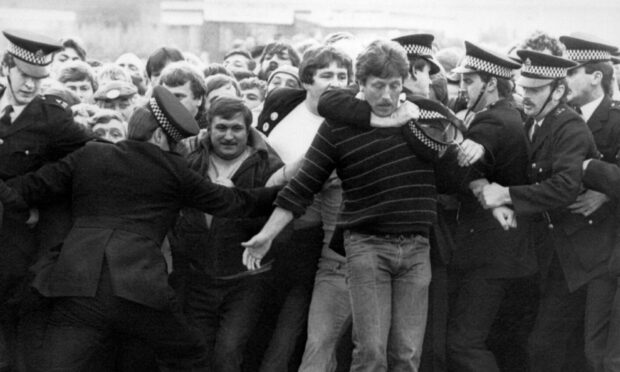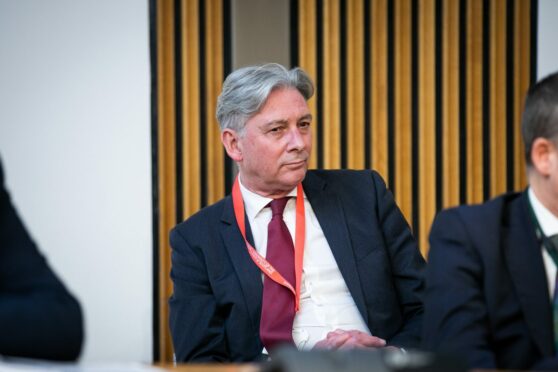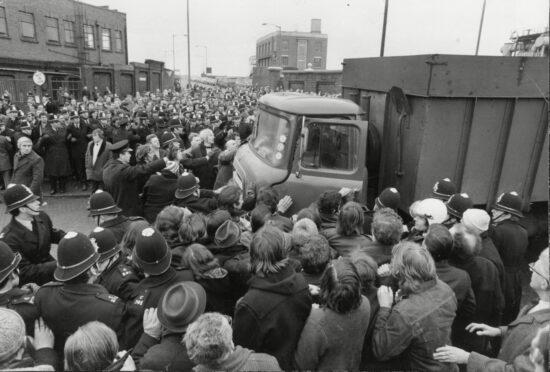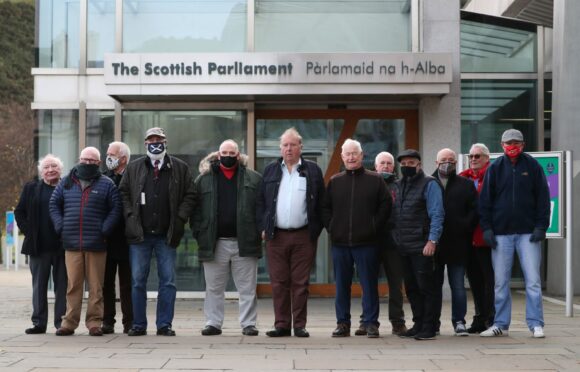Demands to pay compensation to miners officially pardoned for convictions in the 1984-85 strike were blocked at parliament over cost fears.
Scottish Labour politicians want the government to go further than an official pardon.
But MSPs on a Holyrood committee debating the suggestion on Tuesday were told they are not allowed a vote because the cost would exceed the financial limits in the legislation.
‘Worst injustices in Scottish history’
Former Labour leader Richard Leonard, who pushed for the scheme, now has to convince an SNP Government minister to take it forward in a full parliamentary meeting.
Around 1,400 miners were arrested between March 1984 and March 1985, and around 500 were convicted.
Of this 500, some 206 went on to lose their jobs in what Mr Leonard called “one of the worst injustices in Scottish history”.
He says all those arrested, charged, convicted or dismissed should get compensation.
Mr Leonard said: “We were not able to vote on it because the rules of parliament say if there is a requirement for financial resolution it must be moved in the chamber, and it can only be done by a government minister.
“So in the absence of that we are trying to argue the case for that.
“As far as we are concerned, the case for a compensation scheme and the campaign for it remains strong.”
He said a £41 million underspend in the justice department could be used to finance such a scheme.
Justice Secretary Keith Brown was at the meeting and said he recognised miners and their families had suffered financially because of the strikes, and acknowledged the next generation has still not recovered.
But while conceding paying them compensation would be the right thing to do, he said the bill pardoning them was not the place to do it.
Pardon to cover household members
Other changes to the proposed legislation were agreed, including extending the pardon to those living with miners.
Labour failed to extend that plan to family members who were not necessarily living in the same household.
The committee also agreed to pardon those convicted of theft during the strike, if it can be shown the theft was due to economic desperation from having no income.
This means the new legislation will pardon miners and members of their household convicted of breach of the peace, breach of bail conditions, obstruction of a police officer, or theft.
Mr Leonard could not find enough support for his call to include 16 miners in the Strathclyde region who were convicted under the Conspiracy and Protection of Property Act 1875.



